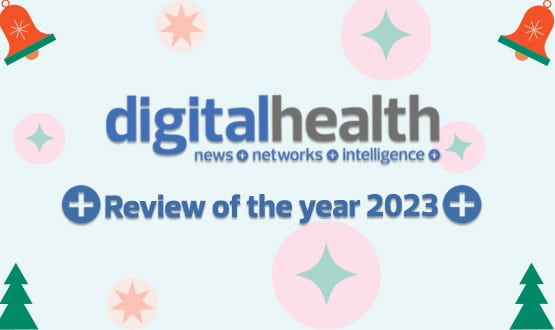Tom’s digital disruptors: mobile video consultations

When Prime Minister David Cameron announced his ambition for a seven-day NHS back in May 2015, one of the ideas that stood out for a tech audience was that patients should regularly use a video phone service such Skype or FaceTime to speak to a clinician.
It wasn’t the first time a politician or a high level member of the NHS had expressed great enthusiasm for this kind of service; and undoubtedly it won’t be the last. However, Skype is now 13 years old and doesn’t seem any closer to embedding itself properly in a health service that is still happy to rely on the fax for many functions.
There have been a few select, cases in which the service has been introduced and seems to make a difference; generally by allowing people in remote communities or those who have other difficulties travelling to avoid unnecessary trips to a clinic or hospital.
But uptake in the NHS remains low, leaving room for innovators in the private sector to create mobile apps that can link a user to a doctor directly and then allow them to have a consultation using a smartphone or tablet.
Moving to mobile
One of the most talked about players emerging in the area is Babylon, a start-up founded by Ali Parsa, who set up the private healthcare company Circle in 2004.
The Babylon app, launched in 2014, is available in the UK and Ireland on both the Apple Store and Google Play and for both smartphones and tablets.
Its main premise is pretty simple: users pay a subscription of £4.99 a month, for which they can get in touch with one of Babylon’s own GPs, set a time for a video or phone call, and then take part in an online consultation.
Speaking to Digital Health News, Parsa says the inspiration for the app came from his time at Circle when he realised the “vast majority of healthcare interaction needs are nothing to do with hospitals.”
For Parsa, turning to information on the internet for self-care wasn’t an option (“you almost always end up thinking you’ve got cancer”). Instead he opted to develop a system that uses trained clinicians to guide people prepared to pay the subscription fee.
It’s a solution he says is more convenient for patients who might not have the time to visit a GP in the day or are in a remote location, while the system also allows prescriptions based on the consultation to be sent to a patient’s local pharmacy.
Dr Now, which has been around for just over a year, is a similar mobile consultation app, although it goes one stage further by offering to deliver prescriptions directly to a user’s house or workplace (within four hours in central London).
Again, this is a service only available to users who are prepared to pay: an adult subscription is £4.99 a month, a child subscription is £3.99, or users can book a one off appointment for £29.99.
Co-founder Dr Andrew Thornber, who also leads the medical team, says there is a gap for these types of tools, with around 50 million GP appointments in the UK requiring a waiting time of more than seven days. “[T]here is a clear demand for GP access on tap,” he says.
For Thornber, the timing is “perfect” for Dr Now to make an impact, with the company due to start a major campaign this autumn after a soft launch that was used to make sure the system worked.
“At the moment the government wants seven day access, but even with that patients can’t necessarily get appointments when they want. Combine that with people wanting to have information when they want it – that could be 7am or 8pm – then this is a really good solution to the problem of access to general practice.”
Uptake and impact
The question still remains whether this is a solution that a significant number of patients will want to make use of, and, significantly, whether they will be prepared to pay for it.
After all, some Prime Minister’s Challenge Fund sites have scaled back extended hours and weekend opening, after finding there was less demand than expected; and NHS appointments remain free.
There’s also the issue of what amounts to private, albeit digital, healthcare being unaffordable for many of those likely to need it most. This is a key issue for Dr Maureen Baker, chair of the Royal College of General Practitioners, who says that subscription services shouldn’t have a place in the NHS.
“Access to a GP should never be dependent on a patient’s ability to pay,” she says. “With waiting times for a GP appointment getting longer, due to the severe shortage of GPs, we are keen to explore alternative ways of providing care to our patients. But we are very concerned about charging patients to see a family doctor.”
Baker does add that mobile phone apps have “huge potential” to support both patients and healthcare professionals though, a point shared by NHS England, which is working on an endorsement model for healthcare apps.
“Digital tools such as apps and video links have the potential to transform the way that care is delivered. We want GPs and local commissioners to adopt these technologies where it makes sense for them and their patients,” an NHS England spokesperson told Digital Health News.
Parsa and Thornber are both keen to point out that feedback from both users and clinicians has been positive, with Parsa mentioning that the app is being downloaded at a rate of one per minute and is featured in NHS Choices App Library (albeit with several one star reviews).
Thornber adds: “Patients like how they can digitise their service and have medications delivered to their work or home address and doctors think it’s brilliant because they can work from their own home and they can have a fixed amount of patients.”
Wider concerns remain though, with Baker pointing out the patient safety implications of apps that don’t connect people to GPs who don’t have an understanding of their history.
She says: “Patients will be having consultations with GPs who are unfamiliar with – and won’t necessarily have access to – their medical history, or information about drugs that they have been prescribed.”
Getting personal
Babylon and Dr Now have both attempted to address this by allowing users to create a basic, untethered medical record.
Electronic medical records are complicated things, however, and have been around longer than the potential for video consultations, giving some push for established suppliers in the area to develop their own methods for remote video consultation.
Emis Health, a major systems supplier in UK primary care, has plans to begin rolling out the ability for video consultation over the NHS’ secure N3 network in November.
This would mean patients could speak to their own GP by video in a situation where the GP has access to the patient record on Emis’ clinical system.
Matt Murphy, managing director of Emis, said this could “enable practices to be able to deliver more in immediate way and management way get to patients faster”.
Medelinked, a supplier of a personal health records in the private sector, also has also recently developed the Chat to a Doctor tool to connect GPs and patients by remote video on a mobile device.
“It’s really important that data tools can integrate with telemedicine,” says Ian Gallifant, Medelinked founder and chief executive. “Having that information at the point of care moves things along. Everyone gets better value out of the consultation time.”
A place for tech
No doubt the calls for greater use of video consultations will persist among politicians, senior NHS executives and tech-savvy patients who are used to FaceTiming and Skyping friends and family across the world.
But the deep-running problems of access to GP and other care are unlikely to be solved by pay-for apps that offer a convenient, but expensive, route into a private service; or even by an NHS version of a video access service.
Baker says: “We do need to embrace technology as part of a 21st century health service but apps offering access to GPs for a fee are not the solution to the intense pressures facing general practice, or for our patients who are finding it difficult to make an appointment.
“We urgently need more investment in general practice services – including 8,000 additional GPs over the course of this parliament – so that we can provide more appointments and give all our patients the care they need and deserve, free of charge on the NHS.”
 |
Tom MeekThomas Meek is a reporter at Digital Health News. February 2015 after spending several years writing about the pharmaceutical industry and healthcare communications, where he developed his interest in using new technologies to support patient care and education. He has a degree in journalism from The University of Stirling. Find him on Twitter at @DHTomMeek |
 |




